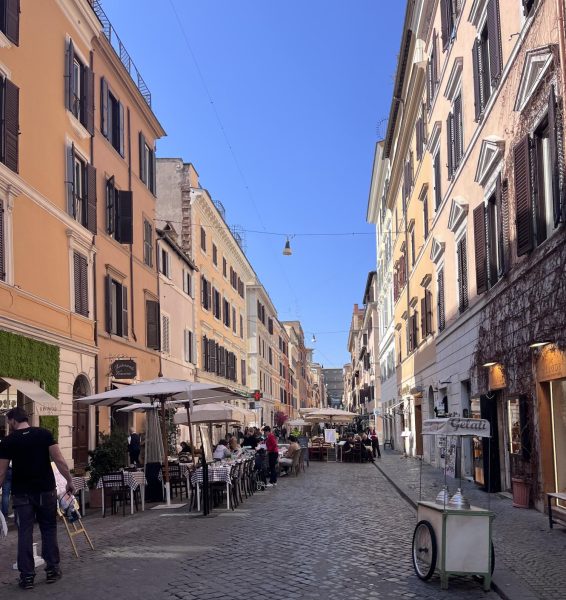Labels and God: reflections on Anthony De Mello
Trees rooted on a fall floor in Arezzo, Italy.
A few weeks ago, I briefly mentioned Rev. Anthony De Mello, an Indian Jesuit priest, in my column. It inspired me to reopen one of his most pivotal books, “The Song of the Bird.” I can’t recommend the book enough. If I had to pick five books to bring with me to a deserted island, this is one. It’s refreshing and calming and so deeply moving. The book consists of a series of allegory/parables, each followed by a brief commentary. The book is built for reflection. Read a story, read the commentary, sit there and think about God and life for a while. So, for this week’s column, I decided to read a few stories and reflect:
What is God? It’s a question we are either doomed or blessed to grapple with forever –– depending on how you look at it, I suppose. A useful first step to beginning to answer this question is to let go of something: labels. Labels are a nasty thing. Born out of necessity, they are not inherently wrong themselves, but I think they often replace or degrade our experience of things themselves. Take a tree for example. It’s so much more than four letters. A tree is the culmination of years of water and sunlight and nutrients from the soil. It’s a sight to see, a jungle gym for adventurous children, a rest stop for migrating birds, a canopy for a young couple to share their first kiss under.
To experience a tree, you can’t just hear the word “tree.” Sure, it’s a useful stand-in when talking about trees, but it hardly could replace the tree itself. To experience a tree you have to see it, you have to climb in it, fall in love under it; let its magic mingle with yours. Nor can descriptors adequately describe a tree; they can describe its features, but never its essence. A tree is tall, covered in bark, has green leaves, has brown leaves, has no leaves. These are descriptors that can help to discuss a tree but bring us no closer to experiencing it or really, truly understanding it.
All of this, I think, is both obvious and fundamental, but that doesn’t prevent us from succumbing daily to the trap of labels. In a world built of words, it’s impossible not to label. It is important then, to periodically remind ourselves of the violence words can do to the fullness of things. They reduce that stoic creature –– that 100-year-old beast taller than a house, that sunshine-eating, carbon-sucking, hammock-holding, life-giving home –– to “tree.”
And as if the violence of “tree” wasn’t bad enough, we’ve reduced the notion of the transcendent, the fundamental life-force of the universe, the thing humanity has grappled with for eons, to three letters: God. Those three letters could never capture the fullness of God. Nor can any word, for that matter. We like to pin descriptors on God.
God is love. He’s all-powerful. She’s all-knowing. It’s everywhere. These are great ways to rationally think of God — an exercise certainly worthwhile. But, just as calling a tree tall doesn’t help us understand its essence, calling God love doesn’t help us understand his (her/its) essence. It can help us focus on what to look at (if we are looking for a tree, look for something tall and leafy, if we are looking for God, look for something loving and joyful) but that’s about it. To really understand God –– as much as is humanly possible anyways –– we have to experience it. We have to climb around in it and fall in love under it. Listen to the birds, look at the stars, dance, tell a joke, hug a friend, shed some tears. Now you’ve seen God.








